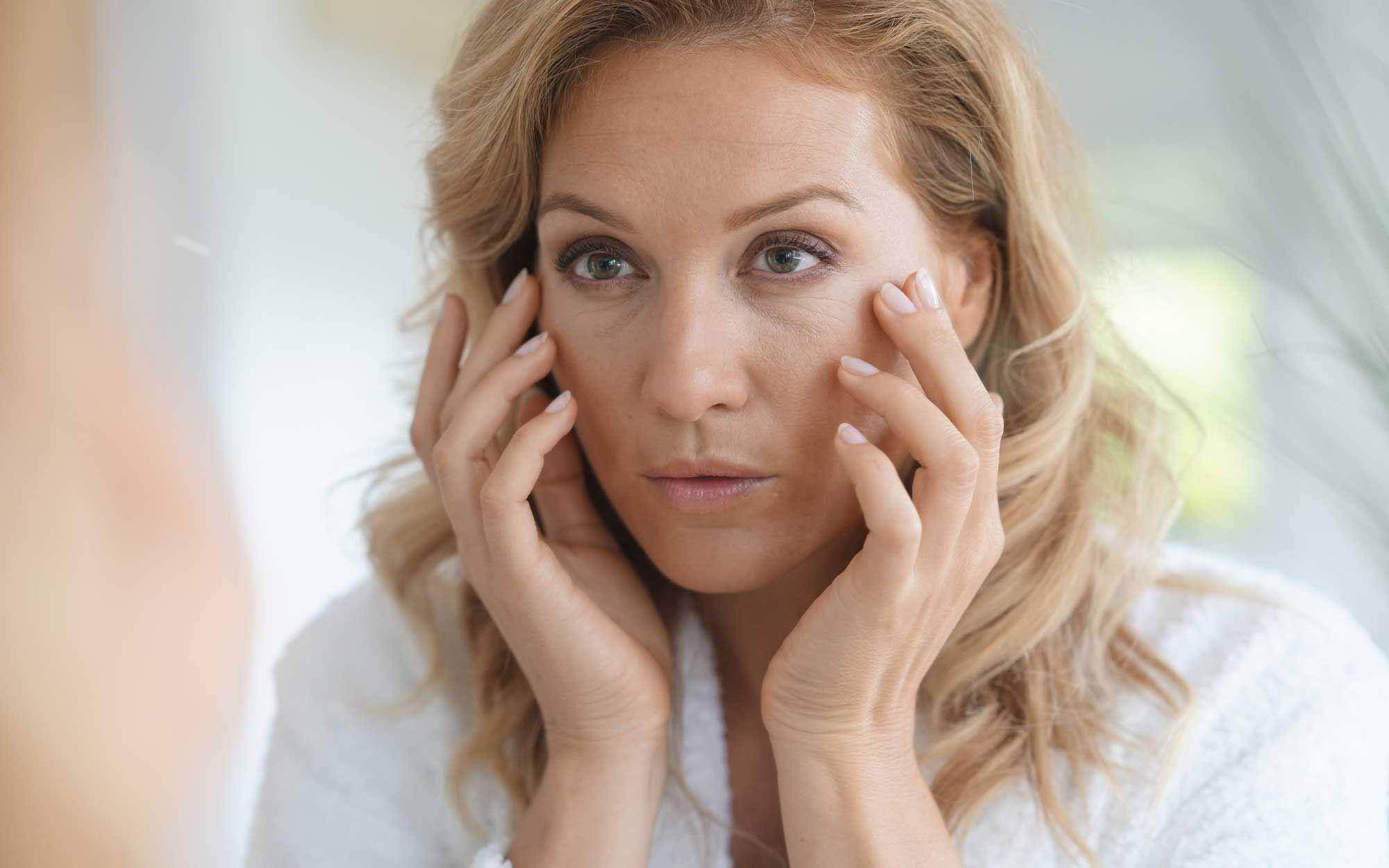Menopause is a biological process believed to mark the end of reproductive years for women. It usually occurs between the late 40s and early 50s for women, but it can happen earlier or later. Menopause can be defined as the cessation of menstrual cycles for 12 consecutive months. During menopause, the ovaries cease to produce eggs, and hormones like estrogen and progesterone are reduced. Sometimes women will not have any symptoms. Menopause symptoms can include:
Hot flashes or night sweats are sudden feelings that you feel hot and sweaty. Flushing, chills and rapid heartbeat can also accompany them.
Menopause is associated with mood changes, including irritability and anxiety.
Dryness of the vaginal tissue
- Low estrogen levels can cause itching, discomfort, and pain when sexing.
- Menopause is associated with insomnia, night sweats and other sleep disturbances.
- Menopause may cause changes in sexual function, including a reduction in libido.
- Menopause may cause urinary incontinence and urinary tract infection, among other symptoms.
Physical changes
Weight gain, joint pain, and headaches are all physical symptoms of menopause.
Some women may also experience symptoms not listed. Discussing symptoms with your healthcare provider will help you determine the best treatment. You should also maintain a healthy lifestyle and receive regular medical attention during and after menopause. Menopause symptoms can be managed with various treatments, such as hormone replacement therapy (HRT), non-hormonal medications, and lifestyle modifications. Discussing treatment options with your healthcare provider will help you determine your best choice. It is usually diagnosed when a woman goes 12 months without menstruation.
Menopause is a common condition that can be treated with natural remedies.
Black Cohosh
Black Cohosh Black Cohosh has traditionally been used to treat menopausal-related symptoms. It can help reduce hot flashes, night sweats, mood changes, vaginal dryness, and mood swings. It is not recommended for women with a history of liver disease. Black cohosh is traditionally used to relieve menopausal symptoms and may be effective for some women. However, there have been reports that its use can cause liver damage or other side effects, especially when taken long-term and in high doses. Women with liver or other medical conditions who have a history should consult their healthcare provider before using black cohosh. It is also important to use only high-quality products of black cohosh from reputable suppliers and to adhere to recommended dosages.
Soy
It contains phytoestrogens. These are plant-based compounds which can mimic estrogen’s effects in the body. Tofu, edamame, and soymilk may reduce hot flashes and improve vaginal drying. This can lead to mild estrogen-like symptoms, which may alleviate menopausal symptoms such as vaginal and hot flashes. Tofu, soymilk, and edamame are all good sources of phytoestrogens. It is important to remember that soy’s effects on menopausal symptoms may vary from person to person, and not every woman will benefit. Choose whole soy foods over highly processed soy food and consult your healthcare provider before significantly changing your diet or using soy supplements.
Flaxseed
Flaxseed contains lignans which can mimic estrogen’s effects in the body. Flaxseed can help reduce hot flashes and may improve vaginal aridity. Flaxseed is available in many forms. You can add it to your diet as flaxseed powder, flaxseed oils, or flaxseed supplements. It is important to remember that much research is still needed on the best dosage and duration for flaxseed consumption in menopausal symptom relief. It would help if you also started by consuming small amounts of flaxseed and then gradually increase your intake. High doses of flaxseed can cause side effects in the gastrointestinal tract. Speaking with your healthcare provider before using flaxseed or any other natural remedy is always important.
Exercise
Exercise can help reduce hot flashes, improve mood and even reduce their frequency. Exercise can improve sleep, which is often disturbed during menopause. Exercise is also important to improve or maintain bone density. This helps prevent osteoporosis. Movement can be varied depending on fitness level and individual preferences. However, recommended exercises for postmenopausal women include brisk walks, swimming, cycling and strength training. Before starting an exercise program, it is best to consult your healthcare provider. This is especially important if you suffer from medical conditions or have not been active for a long time.
Meditation and Yoga
Both meditation and yoga can help reduce stress and improve mood. They can also reduce hot flashes and enhance the quality of sleep. Regular meditation and yoga may reduce hot flashes, improve sleep, and reduce anxiety and depression associated with menopause. These practices can also improve the overall quality of life and well-being of women going through menopause. The benefits of yoga and meditation may vary from person to person and may require regular practice to improve symptoms significantly. It is important to consult a healthcare provider before beginning any new wellness or exercise routine.
Vitamin D
Vitamin D can help reduce the risk of osteoporosis. This is a concern that many women have during menopause. Vitamin D is obtained from sunlight, supplements and certain foods, such as fatty salmon and fortified milk products.
Red Clover contains phytoestrogens. It can help reduce hot flashes, and other symptoms of menopause.
You should always consult your healthcare provider before trying any new treatment for menopause.


